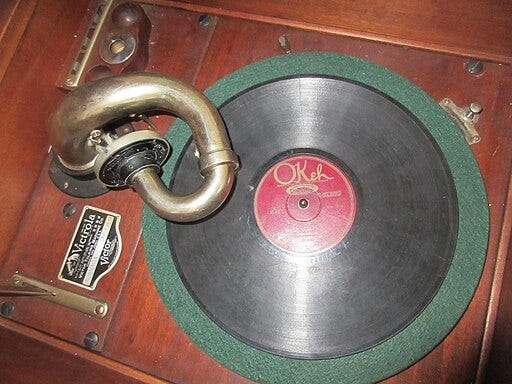Today, I am sharing some history of “Make Me A Pallet On The Floor.” It is a song I have heard my whole life but have recently been enamored with. Like “My Bucket’s Got A Hole In It,” it is now a standard in jazz, blues, and folk repertoire but has no clear documented origin—emerging in the south in the late 1800s and becoming popular in New Orleans at the turn of the century. In a field recording by Alan Lomax, Delta blues guitarist and singer Sam Chatmon said, "When I first started picking guitar, it was about the first or the second [song] I learned ... [I] was about four years old.” This would have been around 1900, two hundred miles north in rural Bolton, Mississippi.
In 1906, the Indianapolis Freeman referenced a performance of the song by "The Texas Teaser, Bennie Jones.” It appears in sheet music form in 1908 as part of "Blind Boone's Southern Rag Medley No. One: Strains from the Alleys." Musicologist Peter Muir said, "The lyrics first appear in a 1911 article by folklorist Howard Odum, who had transcribed them from a performance he had heard in Mississippi a few years before." So it’s safe to say it had been played for many years before being recorded and published.

Early jazz folklore says it was a favorite of cornetist Buddy Bolden. Buddy is a crucial figure in the emerging style at the turn of the century in New Orleans. His playing career ended in 1907—no recordings of him exist—but his influence was legendary. New Orleans clarinetist George Baquet recalled the effect Bolden’s music had on him the first time he heard it at Odd Fellows Hall: “All of a sudden, Buddy stomps, knocks on the floor with his trumpet to give the beat, and they all sit up straight. They played “Make Me A Pallet.” Everybody rose and yelled out, “Oh, Mr. Bolden, play it for us, Buddy, play it!” I’d never heard anything like that before. I’d played “legitimate” stuff. But this was something that pulled me in. After that, I didn’t play legitimate so much.”
Edward "Kid" Ory first heard Buddy Bolden at a train station in his hometown of LaPlace, LA—performing from the baggage car during a stop on his way to play a dance in Baton Rouge. “Kid” Ory was a Creole American jazz composer, trombonist, and band leader born in 1886. He moved to New Orleans as a teenager and heard Buddy everywhere he could. Bolden’s band was Ory’s favorite. On a Saturday in 1900, while practicing his trombone at his sister’s house, he recounted a knock on the door: “It was the most famous musician in New Orleans, Buddy Bolden, whose band I had heard many times.” Buddy was looking for a trombone player and asked if he’d like to join the band, but his sister thought he was too young—he was fourteen.
The song is often erroneously credited to W. C. Handy, who later modified it into “Atlanta Blues,” published in 1923, featuring lyrics credited to Dave Elman. An early statement of the melody appears in Handy's 1917 recording of "Sweet Child,” played by a solo violin as an interlude two minutes in.
The first recording of the song with its title ("Make Me a Pallet,” OKeh 8247, 1925) was made by Virginia Liston—a vaudeville singer and performer whose 1925 recording lists no composer. However, the other songs on the album credit composers and lyricists, leading music historians to believe it was considered public domain even then. Ethel Waters recorded it ("Make Me a Pallet on the Floor,” Columbia 14125-D, 1926) the following year. In 1928, Mississippi John Hurt ("Ain't No Tellin',” OKeh 8759, 1928) recorded the melody under a different name. He released a classic version called “Make Me A Pallet On Your Floor” (a typical title alteration) in 1960. He played it throughout his career—so the tune was clearly in circulation at the turn of the century when he was learning to play guitar.
I first remember hearing it on Odetta Sings The Blues. I grew up hearing a lot of Odetta in my house, and this is still one of my favorite versions.
In recent years, Gillian Welch and David Rawlings have recorded and performed it as if it were written for them. It is on her album, Soul Journey—one of my favorites. It almost sounds like a different tune, but I love it.
Do you have a favorite version of this song I should hear?




I believe if you click the link and are in the soundslice portal, you have an option in the lower right to transpose it. That's what I do to see it in Bb
I heard it first in the Odetta version, but my strongest memory of the song comes from the Doc Watson version.